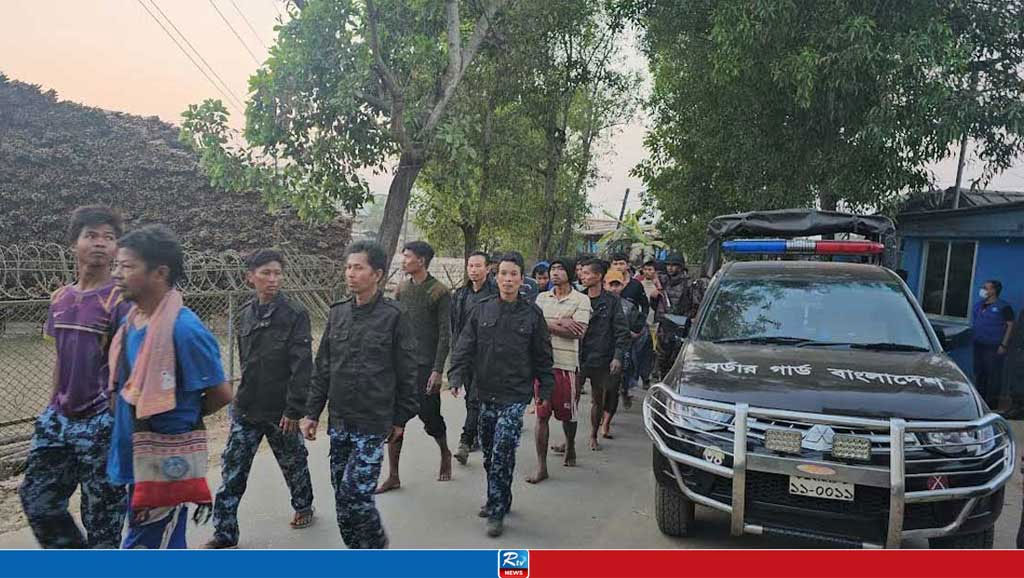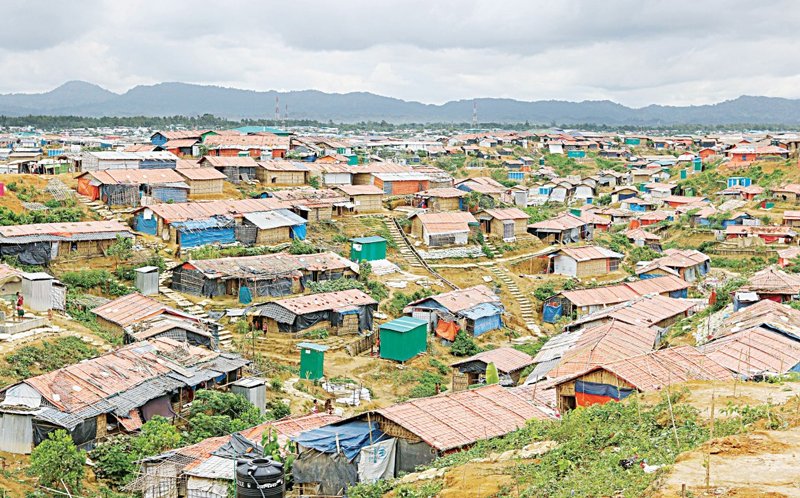Other nations also have responsibility to shelter Rohingyas floating at Bay: FM
Bangladesh has pointed out international community's continuous call only on Bangladesh to shelter Rohingyas floating at Bay on boat saying the other countries of the Bay of Bengal region are not requested to share the burden in a similar way.
Foreign Minister Dr AK Abdul Momen urged all the countries to take effective steps quickly to resolve the Rohingya crisis.
He conveyed the message when British Minister of State for the Commonwealth and the United Nations Lord Ahmad made a phone call to him on Monday requesting Bangladesh to give shelter to floating Rohingyas at Bay.
"Despite limited resources, Bangladesh has already given shelter to around 1.1 million Rohingyas on humanitarian ground. The small number of floating 500 Rohingyas are not in Bangladesh territory," he said.
Talking to UNB, a diplomat said it is the responsibility of surrounding countries of the Bay of Bengal and the Andaman Sea to share the responsibility and helping the distressed people in the deep sea.
There are eight countries -- Myanmar, India, Thailand, Sri Lanka, Malaysia, Singapore, Indonesia and Bangladesh – in the Bay of Bengal region.
Foreign Minister Dr Momen said though Bangladesh was requested to give shelter to floating Rohingyas showing humanity, other countries in the region were not requested to do the same thing.
He conveyed the UK Minister to take the floating Rohingyas sending their Royal ship.
The Foreign Minister also said other countries of the world should take 1.1 million Rohingyas and give them shelter in their respective countries.
Earlier, UNHCR, the UN Refugee Agency, sought greater coordination and responsibility-sharing by states to address the maritime movements of refugees and asylum-seekers in the Bay of Bengal and Andaman Sea saving lives.
"We’re increasingly concerned by reports of failure to disembark vessels in distress and of the grave immediate risk this poses to the men, women and children on board," said Indrika Ratwatte, Director of the Regional Bureau for Asia and the Pacific.
The UNHCR official said saving lives at sea must be a collective effort in which any one state that rescues and disembarks refugees can draw on resources pooled from other states in the region.
"Predictable disembarkation and safe pathways for refugees in distress strengthen public health by ensuring that whatever the manner of arrival, people go through appropriate health screening," said Ratwatte.
The UNHCR official said it safeguards prevention measures rather than risking that people will instead seek clandestine points of entry without going through proper quarantine procedures.
Rescue at sea and allowing the persecuted to seek asylum are fundamental tenets of customary international law, by which all states are bound, said the UN agency.
Beyond the current COVID-19 crisis, Ratwatte said, a predictable and humane disembarkation approach will remain critical. "UNHCR is calling on all states to uphold these lifesaving obligations to refugees and asylum-seekers."
The UNHCR said search and rescue, along with prompt disembarkation, are lifesaving acts.
"The dire – and, in many cases, fatal – predicament of thousands of refugees and migrants in the Bay of Bengal and Andaman Sea in 2015 ultimately demonstrated the critical, humanitarian imperative for solidarity and joint action to address threats to life at sea," said Ratwatte.
The 2016 Bali Declaration embodied these principles and outlined the way forward to prevent another crisis in the Andaman Sea.
"We must not return to such life-threatening uncertainty today," said Ratwatte.
In the context of the unprecedented current COVID-19 crisis, the UNHCR official said, all states must manage their borders as they see fit.
"But such measures shouldn’t result in the closure of avenues to asylum, or of forcing people to return to situations of danger. UNHCR stands ready to support Governments in carrying out responsible disembarkation procedures and quarantine measures to ensure that public health issues are addressed."
Ratwatte said the challenge of irregular movement is not unique to Asia.
Refugees and asylum-seekers move through unofficial and often inherently risky channels because it is the only option available to them. The reality for many refugees is that persecution and threats to their lives and well-being are more immediate than COVID-19.
"UNHCR notes and is encouraged by the Association of South East Asian States’ clear commitment to joint action and a whole-of-society approach in the context of COVID-19," said the UNHCR official.
Leaving no-one behind is the only lasting means of ensuring that we collectively beat this global challenge, and they are all only as strong as their most vulnerable members, said Ratwatte.
Source: UNB
AH
28 Apr 2020,13:48
















 Live Tv
Live Tv




